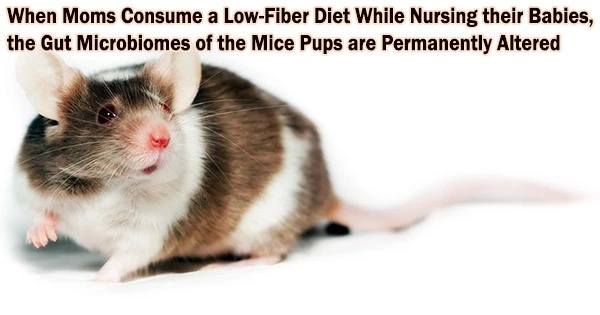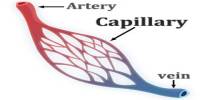Their native microbiome, which is frequently modified by their mother at birth and throughout nursing, is established by the first items that mouse babies touch and eat. Despite the fact that nutrition is a proven cause of obesity at all stages of life, research into the impact of nursing mothers’ diets is still ongoing.
Researchers found that when nursing mice moms consume a low-fiber diet, their offspring’s microbiome is permanently altered, causing gut inflammation and obesity, according to a publication published on December 8 in the journal Cell Host and Microbe.
“We wanted to see what would happen if we gave a low-fiber diet to the mothers at the time their pup’s microbiome is being wired,” says senior author Andrew Gewirtz, a microbiologist at Georgia State University. “Would we see an increase in obesity in the pups due to an altered gut from their moms’ diets?”
Obesity is often attributed to diet, and the consumption of energy-dense meals, such as “fast foods.” But despite the fact that so-called “junk food” has been around for a long time, obesity rates are still rising. Gewirtz and his team investigated if one’s early microbiota may have altered their sensitivity to the negative consequences of these diets.
The two distinct diets, either a fiber-balanced “chow” commonly used in research mouse studies or a low-fiber food, were given to nursing mother mice by the researchers. The puppies were weaned after three weeks of breastfeeding, and their microbiota was examined using fecal samples.
I was shocked at how quickly the mice gained weight when they were exposed to this diet. The data was striking, and I didn’t believe it at first. It took many replications to convince me.
Andrew Gewirtz
When mice fed low-fiber diets were compared to mice fed a typical diet, the mice fed low-fiber diets had an abundance of Proteobacteria in both the pups and the moms. Both mothers and pups experienced digestive disturbances in addition to changed microbiomes, and the pups’ weight nearly doubled.
“I was shocked at how quickly the mice gained weight when they were exposed to this diet,” says Gewirtz. “The data was striking, and I didn’t believe it at first. It took many replications to convince me.”
Proteobacteria are a sizable, extensively researched class of bacteria that have easily activated innate immune systems on their surface proteins. The body is alerted by this activation to a sickness, and chemicals that induce inflammation are released as a result. Additionally, the bacteria change the intestines in a way that increases the absorption of dietary lipids, which contributes to an increase in obesity.
According to Gewirtz and his team, consistent fiber intake helps fuel the microbiome in a way that promotes the growth of a variety of microorganisms. The bacteria that depended on the fiber for nutrition may die off when it is gone, allowing Proteobacteria, which don’t consume fiber, to thrive unfettered.
The pups nursed by moms on low-fiber diets experienced long-lasting consequences from the gut disturbance. The low-fiber mice’s stomachs still showed extraordinarily large quantities of Proteobacteria after nine weeks on the standard diet after weaning, and the pups kept gaining weight.
“I hope this work can shed light onto how complex our metabolism and microbiome really are and how our early life experiences can shape us for the rest of our lives,” says Gewirtz.
















